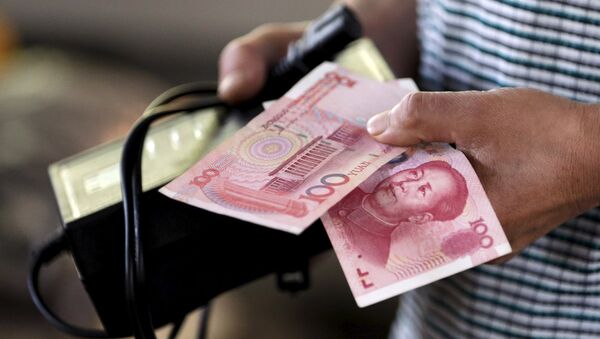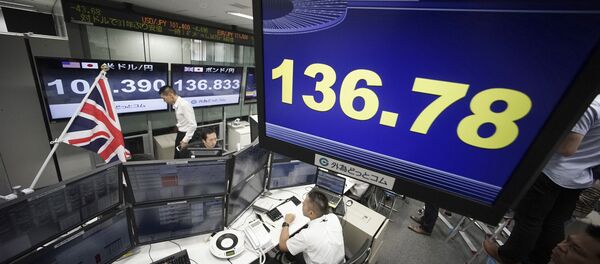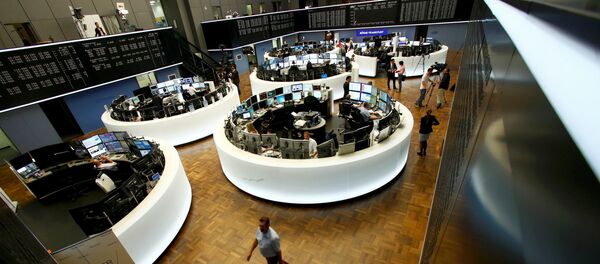BEIJING (Sputnik) — The Chinese Central Bank set the average exchange rate of the yuan to the dollar at around 6.6375, which is some 599 points more than on Friday, when the exchange rate was 6.5776. The Monday's data thus show the biggest drop since December 23, 2010.
On Thursday, the United Kingdom held a referendum to determine whether or not the country should leave the European Union, with over 50 percent of the UK public voting in support of Brexit.
On Friday, Xiao Lisheng, a senior research fellow at the Chinese Academy of Social Science Institute of World Economics and Politics said that China is concerned over London's role in further internationalization of the yuan in the European region in the wake of Brexit vote due to the UK being the sole major financial hub for the Chinese currency in Europe.
China has been striving to make the renminbi an international reserve currency since the late 2000s. In late 2015, International Monetary Fund (IMF) Managing Director Christine Lagarde announced that the yuan had received a status of reserve currency. The Chinese currency is set to officially become a reserve currency in September and is expected to contribute to the value of the special drawing right (SDR), which the IMF uses to price its emergency loans.
London remains a key hub for renminbi-denominated trade activity, accounting for over half of all transactions outside of China, according to the UK government.



